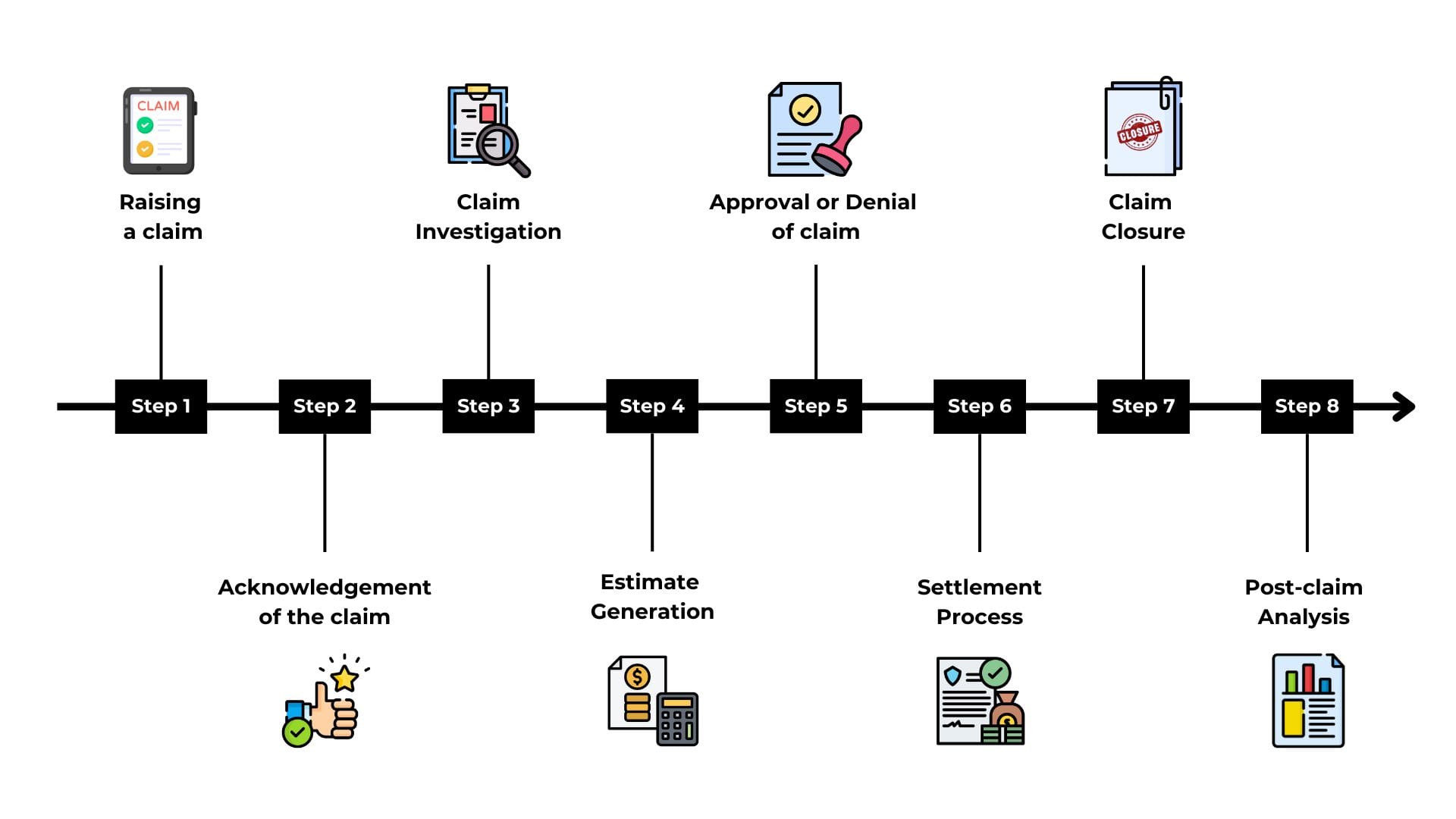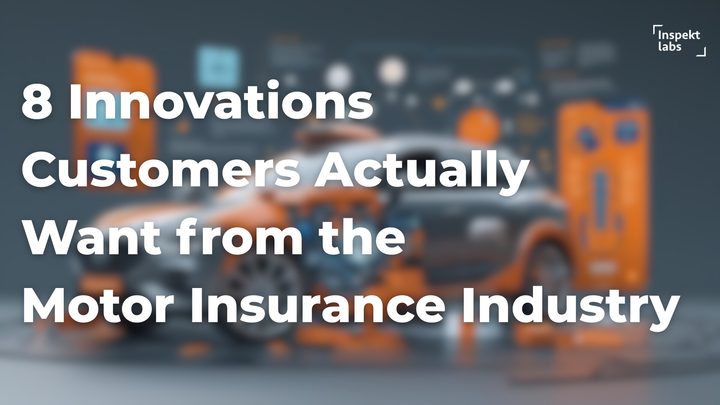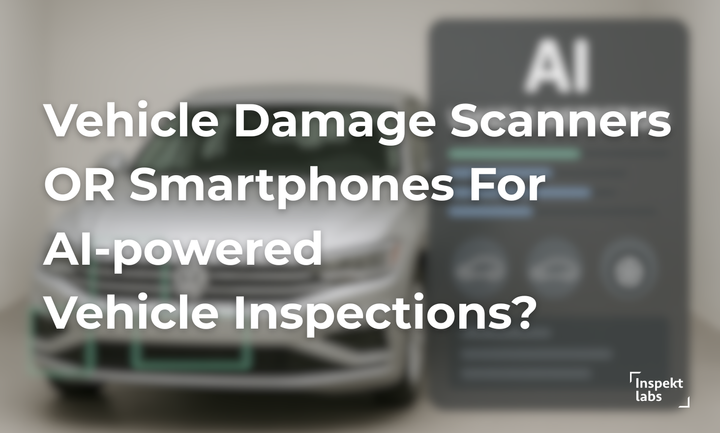How AI streamlines the Auto Insurance Claim Process for Faster Payouts
In this blog, we talk about the steps involved in the claims process and how AI can help automate some of these processes for faster payouts.

Filing an auto insurance claim has traditionally been a slow, tedious, and paperwork-heavy experience. Customers often face long delays as insurers manually process documents, inspect vehicle damage, assess claims, and approve or reject payouts. Every step demands human intervention, causing inefficiencies and dissatisfaction.
But today, thanks to advances in AI car insurance tech, much of this process can be automated. From damage assessment to fraud detection and claim approvals, insurers can now rely on AI inspection tools to accelerate payouts and enhance customer satisfaction.
In this blog, we will explore how AI is revolutionizing the auto insurance claims journey and how solutions like Inspektlabs’ vehicle inspections tool are leading the way.
(Also read: 6 advantages of Insurance Claims Automation)
Understanding the traditional Auto Insurance claims process

Before diving into AI’s role, let’s briefly understand how a conventional auto insurance claim is handled. The process typically involves 0
- Claim reporting - The policyholder submits claim details, such as policy number, date of incident, description, damage photos, and police report (if required).
- Acknowledgement - The insurer acknowledges receipt, assigns a claim handler, and issues a claim reference number.
- Investigation - This includes checking policy validity, inspecting damage, determining liability, and performing fraud checks.
- Estimate generation - Damage estimates are calculated based o inspection findings and market repair rates.
- Approval or Denial - The claim is approved if all criteria match; otherwise, it may be denied with an explanation.
- Settlement - Either via cashless repair through partner garages or reimbursements to the policyholder.
- Closure - Final documentation is shared, and the case is closed.
- Post-claim analysis - Insurers log data to improve process and pricing.
This multi-step process can stretch over days or even weeks. Let’s now look at how AI can fix that.
How AI transforms the auto insurance claims journey
Integrating AI into the auto insurance claims rpocess enables insurers to:
- Automate claim validation
- Accelerate damage assessments
- Reduce fraud
- Improve customer experience
There are two key automation models used in AI-based claims processing:
Straight Through Processing (STP)
Straight Through Processing is a fully automated system where claims are settled end-to-end without human intervention, which is ideal for low-risk/minor claims.
Here’s how STP works using AI insurance claims tech:
- Digital claim filing: The customer uploads incident images and details via an app or website.
- AI-powered validation: An AI inspection model validates policy coverage, assesses liability, and checks for fraud.
- Damage detection: AI analyses vehicle images and generates a damage report within seconds.
- Instant approval - If the claim meets preset criteria, it is auto-approved.
- Payout initiation - Funds are transferred to the policyholder or repair garage instantly.
Benefits:
- Near-instant approvals
- Reduced operational overhead
- Higher customer satisfaction
Limitations
- May struggle with complex damage scenarios or subtle fraud
- Not suitable for high-risk or ambiguous claims
Fast-track claims
Fast-track claims blend AI car insurance tools with streamlined human workflows. They’re ideal for more complex cases where full automation isn’t viable.
Key features -
- AI-enabled prequalifications: AI models quickly analyze claim submissions to categorize them based on complexity
- Smart damage assessment: If the damage is external and straightforward, the AI handles it. If not, the case is flagged for manual inspection.
- Simplified approvals - Human agents step in only when necessary, speeding up approvals while maintaining accuracy.
- Cashless settlements - Approved claims are settled via partner garages or reimbursed quickly.
Fast-track claims offer a balanced approach - faster than manual, yet cautious enough for complex claims.
Key differences between STPs and Fast Track Claims
How Inspektlabs Automates the Auto Insurance Claim Process
At Inspektlabs, we’ve built an AI insurance claim solution designed to reduce time, costs, and friction across the auto claims lifecycle. Here’s how our vehicle inspection tool delivers impact:
- Trained on 10M+ images: Our proprietary AI inspection model is trained on millions of real-world vehicle damage images and videos, ensuring accurate, consistent results.
- Self-service claims: Policyholders can use their smartphone to capture a 360° video of the damaged vehicle, eliminating the need for an in-person inspection.
- Real-time damage reports: The AI generates damage reports and estimates instantly, reducing time to settlement by days.
- Fraud detection built-in: Our system detects fraud patterns and inconsistencies to prevent inflated claims.
- Estimate integration: We work with estimation partners to connect you to verified repair networks and provide cost breakdowns.
Inspektlabs’ AI-powered solution empowers insurers to process claims with unprecedentied speed, precision, and transparency.
Conclusion
The traditional auto insurance claim process is ready to be disrupted. By implementing AI car insurance tools like those from Inspektlabs, insurers can cut down delays, reduce costs, and offer a vastly improved customer experience.
Whether you’re handling minor damages or moderately complex claims, integrating AI into your workflows allows you to shift from reactive to proactive claims handling.
Want to see how our vehicle inspections tool can transform your claims process? Get in touch with us today.



